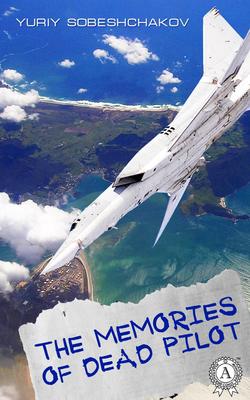Читать книгу The Memories of Dead Pilot - Yuriy Sobeshchakov - Страница 2
На сайте Литреса книга снята с продажи.
Prologue
ОглавлениеEverything hurts. Darkness. I don’t see anything. I open my eyes and begin to distinguish objects around me. I see the reason for the unbearable pain – the plane’s control column against my chest thrusting me back into my bulletproof seat. I feel a burning in my belly; it’s clear that I have some broken ribs and that there must be some internal bleeding. What happened with my crew? I turn my head slowly to the right.
Nothing remains of the navigator’s cabin in the nose of the plane. A direct hit against the concrete drainpipe has turned Captain Vasiliev’s work area into a maelstrom of aluminum, glass, crumpled navigational equipment and random bloodied body parts.
The flight engineer Gennady Rybnikov, who had been sitting between me and the co-pilot during the final approach, is bent double. The seat belt, while preventing him from flying out through the windshield, melded his forehead into the instrument panel. His hands hang lifelessly, and blood drips from his head onto the back of the radio operator. Dead…
Moments before our impact with the collector column of the storm drain at Cam Ranh, the formerly American but now Russian air force base, the radio operator, Nikolai Onopriyenko, had been sitting behind my co-pilot, tapping out the Morse code report of our landing to the headquarters of the fifteenth flotilla of the Pacific fleet. He had tried to crawl under the flight engineer’s seat to the navigator in the nose of the aircraft – obviously he wanted to see how I was going to land the plane on only half of the main landing gear. To him, it was more terrifying to remain ignorant of what was happening than to look the danger in the face. He had almost reached the cabin when the shock of the impact smashed threw him against the navigation equipment.
…..My co-pilot is sitting without his head, amputated along with the headrest of his seat, by the ragged lining of the fuselage. His head, lifeless and immobile, held in place on the radio operator’s worktable by the headset, is cocked over to me and blank eyes stare back at me with what looks like contempt and shock. He didn’t get the chance to tell me how much the Vietnamese paid for transport on our plane from Hanoi to Ho Chi Minh…
Before takeoff, the flight engineer succeeded in cramming thirty locals into the pressurized cabin designed for ten without permission to transport them.
On our way to the former capital of South Vietnam we were reassigned to go to the port city of Haiphong to pick up cargo, which had come by sea from the Soviet Union. Knowing that landing at this intermediate stop was going to cause no end of unpleasantness – like a long prison term for using USSR Ministry of Defense property to transport illegals – I quickly hatched a Plan C, as there was no Plan B. I sent the co-pilot, Sergey Kovalenko, to compile a list of passengers and get the signature of the senior aviation supervisor of the Hanoi International Airport military sector. Not a small task, and it would be costly. The normally stern Major Smirnov was ready to sign anything if the price was right, so I was sure that my assistant would be able to come to a meeting of the minds with him.
Fifteen minutes later Sergey returned. He looked very upset.
“What happened?” I asked.
Breathless, he replied. “For his signature Smirnov wants twenty-five percent of the money collected from the Vietnamese.”
“Yes. And how much would that be?” I took the handfuls of bills thrust at me with no time to count it.
“Let’s say, you don’t want to know. This escapade of yours is definitely not going to be a money maker.” I groaned. Takeoff was imminent and I decided to deal with the financial questions after returning from the mission.
…But now Kovalenko wouldn’t be saying anything to me or any military investigator.
Rescuers run towards the plane from all directions. Oh won’t they be surprised to find my precious human cargo. But why were they all so quiet back there? Circling to land I had drained the fuel from the wing and fuselage tanks almost down to dry, precisely the reason we didn’t explode on impact. So while the command cabin is a twisted mess, the passenger cabin should be fine. Right? But they aren’t making a peep. It was strange. Well, to hell with them.
Rescuers are all around now trying to direct my broken carcass out through the twisted metal. All I can really see, clearly that is, is a need to recall just how it was that I got myself into this shit-hole – both literally and figuratively. Memories are a bad sign. Clearly my brain has concluded that this organism will not survive and has decided to review the most significant episodes of my squandered life.
